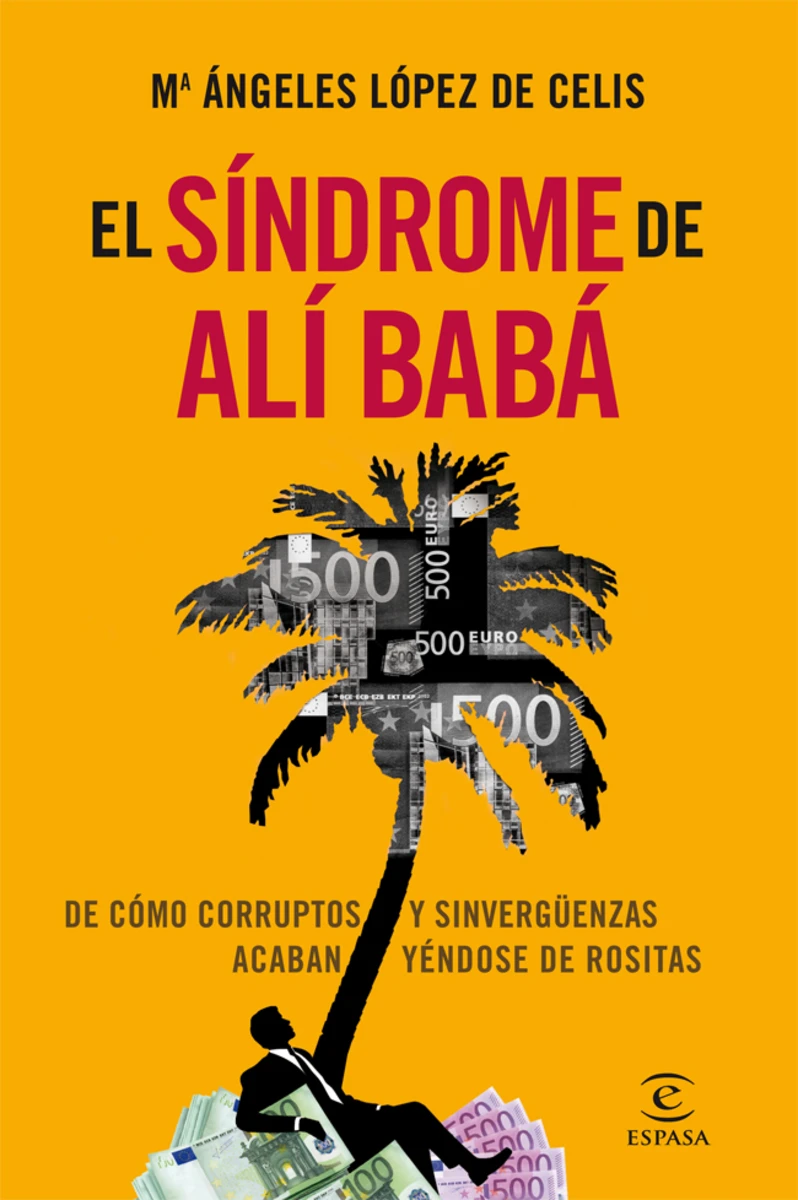A collection of the most interesting and emblematic corruption cases in Spain, from the Franco era to the present day. All narrated with the sharp wit and pen of an expert journalist, who exposes the inner workings of power with irony and precision.
The tale of “Ali Baba and the Forty Thieves” is widely known: a poor man stumbles upon a cave filled with treasures hoarded by thieves, a discovery that completely transforms his life. At first glance, it’s easy to feel sympathy for Ali and celebrate his good fortune. But if we pause to examine his actions, questions arise: he takes everything he can without sharing it or showing any concern for those still living in the miserable conditions he once endured. In that sense, isn’t he acting somewhat like the very thieves he robs?
Writer Mª Ángeles López de Celis draws an intriguing parallel between this story and the history of corruption in Spain: Ali represents the individual who succumbs to greed, the cave is a metaphor for tax havens, and the thieves embody those who, even during times of crisis, seek only to exploit the system for their own gain.
The book is structured into 11 chapters. In each, the author delves into a specific theme related to corruption. She covers events from the Franco era and the democratic transition to current times, including the most notorious political scandals involving major parties, examples of misplaced trust in individuals who later proved guilty, nepotism, attempts to twist laws for personal gain, pyramid schemes based on fraudulent businesses, large-scale real estate fraud, the Marbella case, and the false integrity of many politicians.
All of this is explained through the analysis of real cases, such as the 1981 toxic oil scandal, in which contaminated rapeseed oil containing aniline caused the worst case of mass poisoning in Spanish history, resulting in 346 deaths and over 20,000 affected individuals. Out of 38 people indicted, only 14 were convicted, and they received light sentences.
Another notable case is that of Juan Guerra, brother of then Vice President Alfonso Guerra, who opened a secret office in Seville to collect commissions from businessmen in exchange for supposed favors using his brother’s influence (this case coined the term “influence peddling”).
Other infamous cases are also addressed, such as the Gürtel corruption ring, the Marbella scandal, and more tragicomic examples like Carmen Salanueva, director of Spain’s Official State Gazette (BOE) in the late 1980s. Her time in office was marred by irregularities, and she was suddenly indicted. Even though some charges were later dropped, she could not escape public condemnation. She famously compared her ordeal to being diagnosed with cancer — and, tragically, that was the disease she ultimately died from.
Through all this, the author offers a fierce and objective analysis of corruption in Spain, aiming in all directions and criticizing political figures regardless of party lines. Moreover, the narrative is highly entertaining thanks to the ironic and hilarious tone of the storytelling.
RELEVANT INFORMATION:
The Ali Baba Syndrome stands out for the depth of journalistic investigation carried out by its author, Mª Ángeles López de Celis. A trained psychologist and career civil servant, she is the only person to have served in the Secretariat of the first five democratic presidents of the Spanish Government, working there for thirty-two years. She has been awarded the Cross of the Order of Civil Merit.
She has published several investigative books that delve into the inner workings of political systems. The Ali Baba Syndrome is a prime example, addressing corruption from its conceptual roots to concrete cases in Spanish history.
AUDIOVISUAL POTENTIAL: TV series, miniseries, film, or TV movie.
AVAILABLE LANGUAGES: Spanish.

Adquirir los derechos
Para ponerte en contacto con nosotros completa el siguiente formulario y te responderemos en breve.
Error: Contact form not found.

